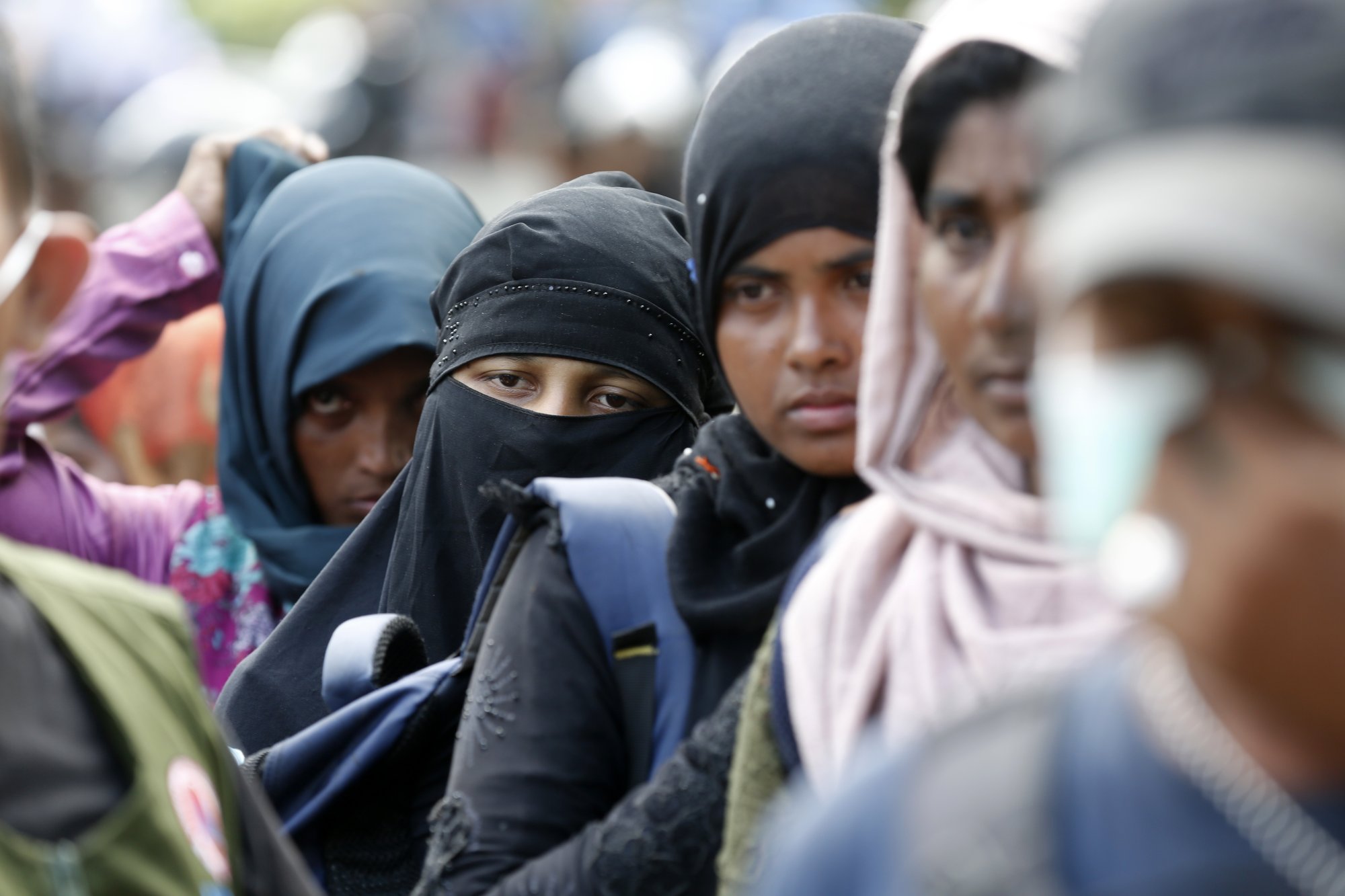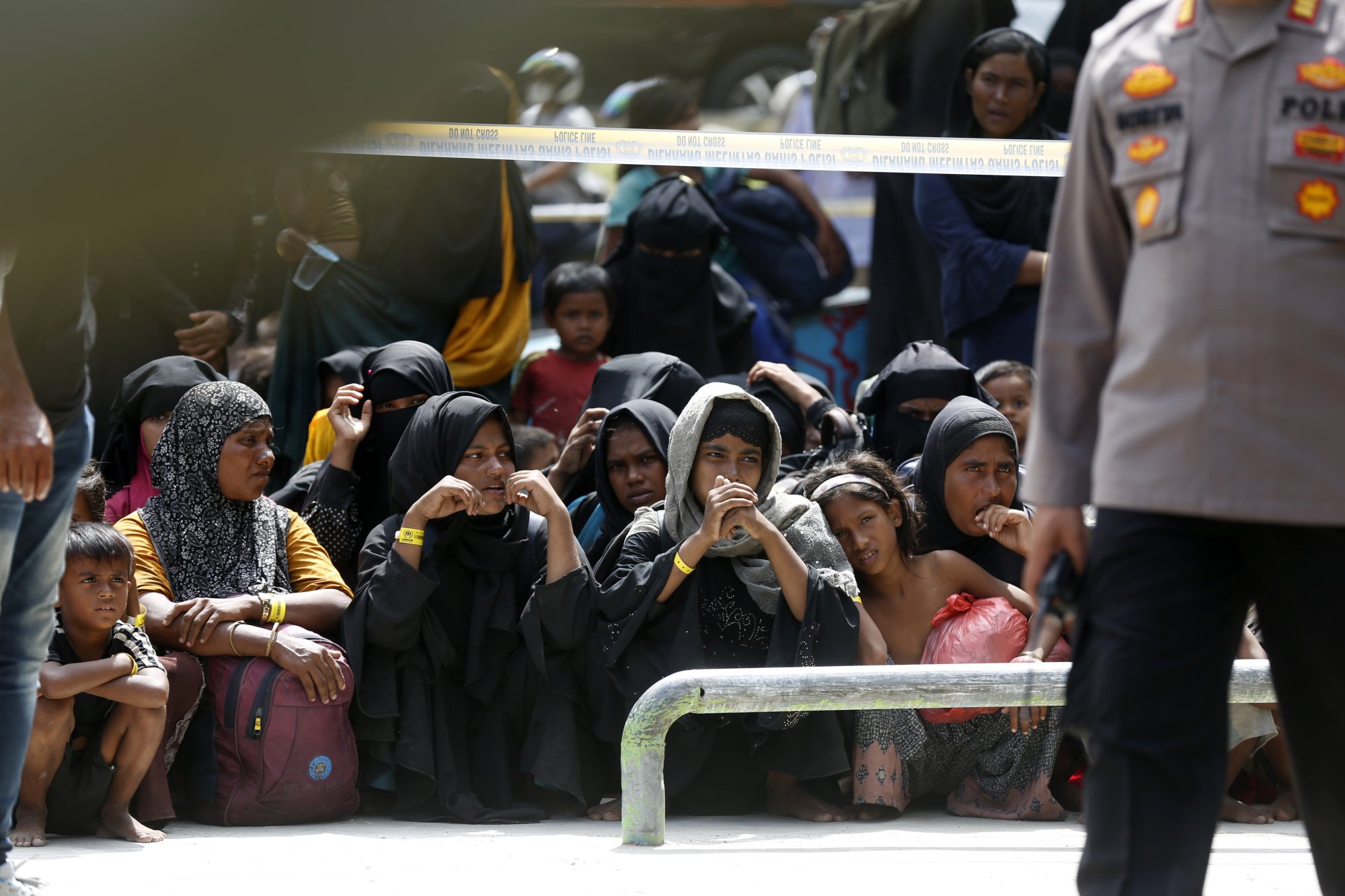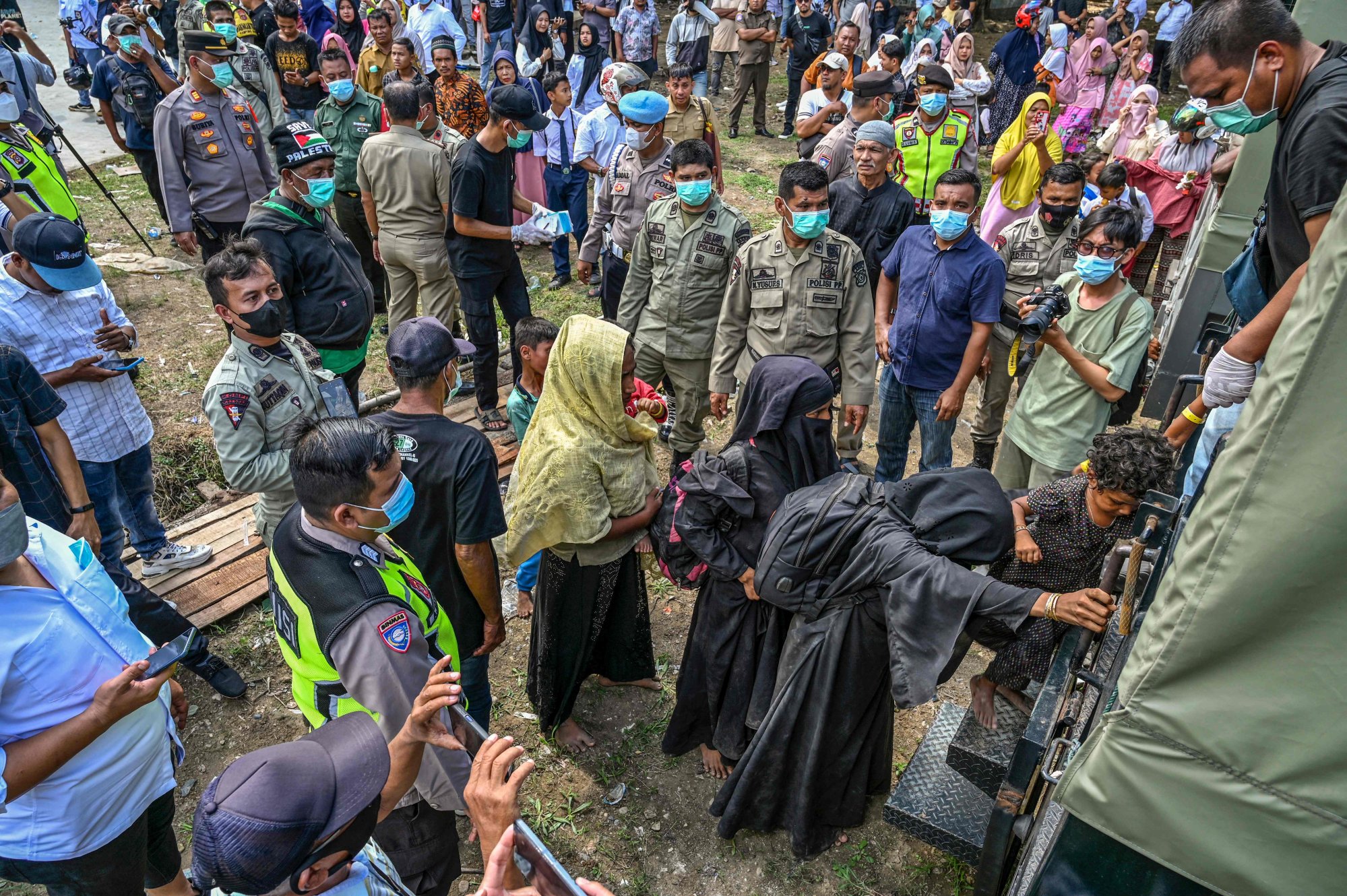“There are still many poor people here,” said Ella Saptia, 27, a resident of Pidie in the ultraconservative province of Aceh, where people have been sympathetic to the men, women and children among the Rohingya refugees brought by dilapidated boats for years.

A spokesperson for the Aceh government did not immediately respond to a request for comment.
This year, the refugees have encountered animosity and threats that their boats will be turned back around.
Protesters on Aceh’s island of Sabang last week removed tents set up as temporary shelters for the Rohingya, images broadcast on local television showed, and threatened to push their boat back to sea.
Babar Baloch, an Asia spokesman for the UNHCR, said the agency was “alarmed” by the reports, which could endanger the lives of those aboard.
They are too many Rohingya in Aceh. This year there are hundreds, even thousands that have come
“They are too many Rohingya in Aceh,” said Desi Silvana, 30, another of those living in the area. “This year there are hundreds, even thousands that have come.”
About 135 Rohingya arrivals last weekend have been moved to the office of the provincial governor after a community in Aceh Besar district rejected them, media said.

It is unclear what has sparked the backlash, which also featured on social media.
“I don’t want to pay tax if it is used for Rohingya,” one user, with the handle trianiwiji9, said on the social platform X, formerly called Twitter. Another described the Rohingya as “parasites”.
For years, Rohingya have left Buddhist-majority Myanmar, where they are generally regarded as foreign interlopers from South Asia, denied citizenship and subjected to abuse.

Widodo on Monday said the Indonesian government would help the refugees temporarily.
“For now we will accommodate them, temporarily. We are still talking to international organisations, such as UNHCR … since the locals don’t accept them,” he told reporters in Jakarta.
Ann Maymann, a UNHCR official who was in Banda Aceh, told reporters on Sunday that Rohingya refugees needed a safe place with help from Indonesia’s government.
“It is the government that should decide [where refugees should stay]. That is their authority. And when they decide, it will work. So I am sure we can manage this,” Maymann said.

